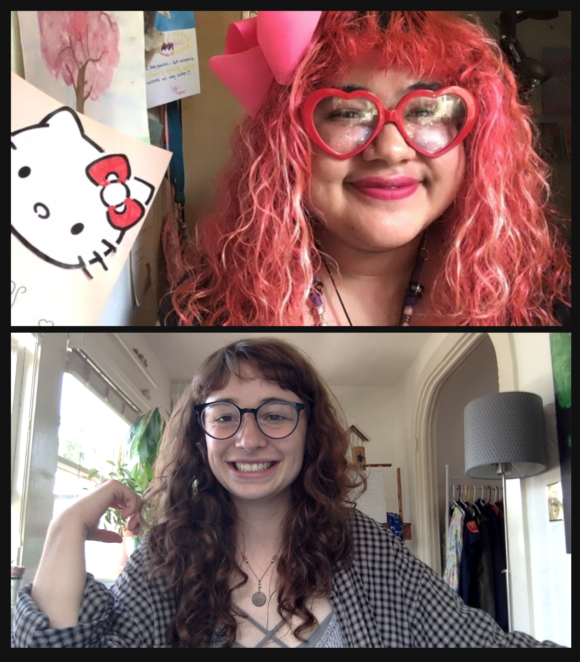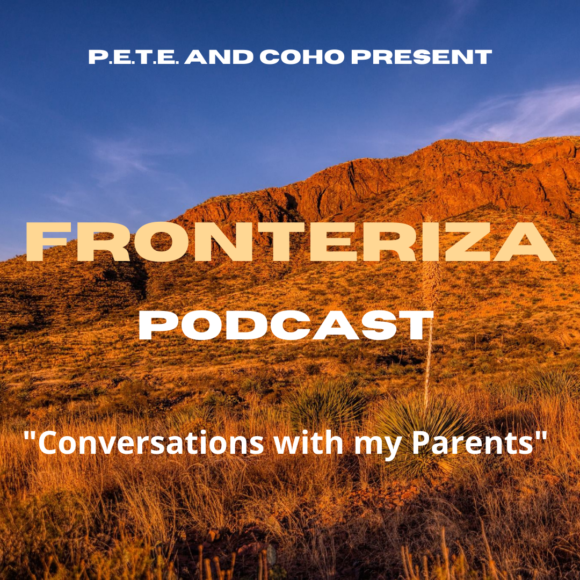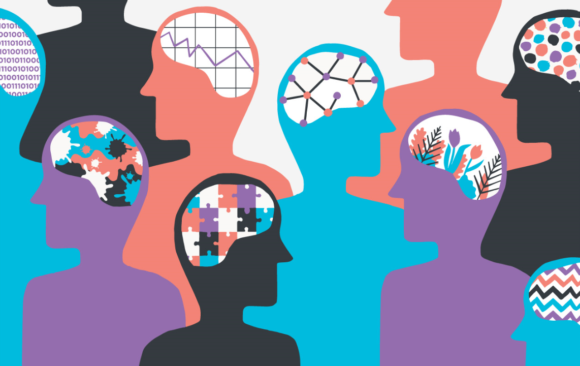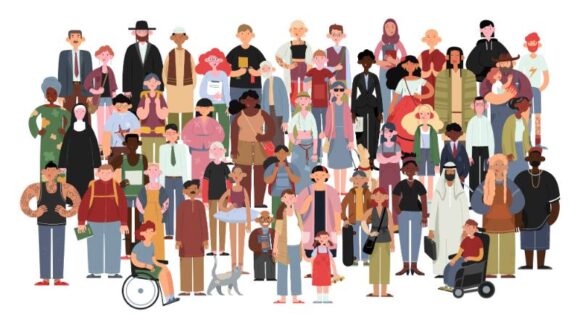 In the second of our summer blog series, I sit down with Anaïs Isiria Gurrola – dramaturg, cultural consultant, playwright, and community organizer. Anaïs put her quadruple-threat talent to PETE’s (Portland Experimental Theatre Ensemble) recent project, Fronteriza. The play took many iterations throughout the course of the pandemic and taught Anaïs many lessons in the art of adaptation.
In the second of our summer blog series, I sit down with Anaïs Isiria Gurrola – dramaturg, cultural consultant, playwright, and community organizer. Anaïs put her quadruple-threat talent to PETE’s (Portland Experimental Theatre Ensemble) recent project, Fronteriza. The play took many iterations throughout the course of the pandemic and taught Anaïs many lessons in the art of adaptation.
When I began my interview with her, she had already written down a list of her thoughts in response to the question: how has the pandemic changed theatre as we know it, and how does this shift intersect with accessibility issues in the industry? Jumping off from her passionate consideration of these queries, she revealed an inspiring and thoughtful perspective on where our beloved industry may be headed in the years to come.
“It’s very freeing to be in your own space.”
Q: So it sounds like you have already put some work into my questions, should we just start with what you’ve got?
A: Sure! In response to your question of [how has theatre shifted in the last 15 months?], the first thing that I’m thinking about is that theater has become so much more fluid and creative. We are seeing things differently. For Fronteriza, we were making compositions over Zoom and they were super cool! I remember Miranda Hardy, she got this scarf and held it over the camera, and it made this very beautiful psychedelic vibe. Maggie Heath was doing some really cool stuff over zoom, finding objects and putting them in front of the camera, using lights and making these absolutely astounding visuals! One day, the Zoom admin changed people’s names into questions from Tell me How it Ends by Valeria Lucelli, a book about the 40 questions that child immigrants are asked.
When it came to the writing, it was not that big of a deal being at home. Cristi Miles would send me her part and ask me to add Spanish and additional comments. I would add my stuff and send it back to her, then we would discuss it over email. It was cool that I was three hours away and I was still able to co-write a script. Our post-mortem for the play will be over Zoom. Even if we can be in person, we’re like, what’s the point?’ We have accomplished so much via Zoom. The majority of Fronteriza was done via Zoom. Now if we want to utilize Zoom, we will in the future. Things are already changing.
“It’s so much work to pretend to be neurotypical.”
Q: How does digital theatre intersect with issues of accessibility in the industry?
A: It is so much more accessible to people of diverse abilities. With anxiety, it’s hard to go out into the world and present yourself in a specific way. When you’re at home, there’s more space to breathe easy. Also, I am on the autism spectrum, and people with autism do this thing called masking. Especially as a woman. It’s where you go out and pretend to be social and look people in the eye, and then you get home and you have a mega let-down because you’re so tired. It’s so much work to pretend to be neurotypical. When I am at home, I’m able to relax more easily. I don’t have to worry about all the external stimulation.
And then PETE itself is working on being way more sustainable. Doing theatre can be exhausting. I have talked to actors who almost quit theatre because of the incredibly high demands. You’re taught to say yes to everything, and it’s just really intense. Digital theatre opens up these possibilities of being able to create in a way that is sustainable. If you’re not feeling well, you don’t have to go or you don’t have to get out of bed. For people with depression, it’s really hard to get out of bed. People with chronic illness, it’s hard to be mobile. The possibility of speaking your truth from home when your body won’t let you leave your bed is very powerful. I think a lot of people that are disabled have good shit to say, ‘cause we know shit! It’s so hard to speak when the meeting is 15 miles away and you have to get up, get dressed. It’s so much easier when it’s through a screen. I think you can have a genuine connection through a screen. I remember meetings on Zoom where people were crying – you can still feel that connection.
“You’re taught that the performance comes before your health.”
A: During production week, two or three days before the show, I didn’t sleep well. I was really anxious, I wasn’t feeling good. Cristi Miles calls me up and checks in on me and is like ‘How are you doing?’ And I’m like, ‘Not good.’ And she’s like, ‘Then you don’t have to come to rehearsal.’ And I was like ‘Yes I do, it’s production week, it’s important, I have to be there.’ In theatre and in life you’re taught that the performance comes before your health. And she’s like, ‘No! We’re trying to be more sustainable. Your rest, your health is the most important.’ That idea is seeping into people’s heads more and more with the pandemic. Your health is important, especially when health is so precarious.
July of 2020, I was diagnosed with bipolar disorder and I had my first manic episode. I didn’t know what it was at the time. It was because a family member died of an overdose and it really shook me, really messed me up. When you have a manic episode you just say things and do things, it’s really embarrassing afterward. And I actually ended up being hospitalized in an institution for two weeks. It was traumatizing being in there. And when I got out, I remember being so afraid that PETE wouldn’t take me back. I didn’t think that they would want me. But Rebecca Lingafelter and Cristi Miles have just been so supportive, beyond supportive in ways that I don’t have the words for. They have been so good to me, and because of that, I have been able to provide the knowledge and say what needs to be said. I’ve been able to work out the background information, write important parts of the play, and really contribute to the whole overall beauty of Fronteriza. And for someone who’s mentally disabled, it’s hard to value your work. They encouraged me constantly, ‘Your work is valued.’ And that helped me be like, ‘Yeah! My work is valuable.’ And my voice can be hard to express sometimes in a neurotypical world, but it meant so much that I was invited back and valued.
“Theatre has often been reserved for the rich and the white.”
Q: Something that’s been coming through in all the interviews is that y’all made it work.
A: We know how to adapt. Humans know how to adapt, we are so good at it. It’s how we survive, it’s how we live. Even though we may be grumpy about it, we have very much adapted to what it’s like to live inside. Humans will continue to do so. It shouldn’t be a surprise.
Q: In the future, what do you hope theatre will look like?
A: I hope that there will be an in-person option and also an online option, to have both always present. It’s not that hard to do. Not a lot of people go to plays, not my people – people of color and people with low income. Theatre has often been reserved for the rich and the white. And, of course, it’s obviously changing, but a barrier is still there. To have it open up to both digital and in-person worlds holds the possibility for including more people.
Q: Many theaters also have had to figure out how to make money in ways other than ticket sales. And buying a ticket is super inhibitive to a lot of folx, so to have theatre’s sustainability model not dependent on extracting resources from their audiences but reaching out into surplus resources instead is really exciting.
A: And we know that reducing financial barriers is possible, we’ve had all tickets free for people of color, which was my idea. That’s step one. Step two is making it free for everyone.
I hope you could absorb some of Anaïs’ infectious enthusiasm and clear-eyed optimism, as I did. After talking to her, I started thinking about how a hybrid model of theatre-making could expand to new and more inclusive access models. Pandemic theatre invites us to break the boundaries between the welcome and unwelcome. This is our opportunity to change the very structure of outreach and belonging. Please join us next time when I sit down with three staff members of Shaking the Tree and ask them for their thoughts on the issue. Thank you for reading and supporting theatre in these wobbly, uncertain times. We appreciate your support – it makes our lives and the evolution of art possible.









